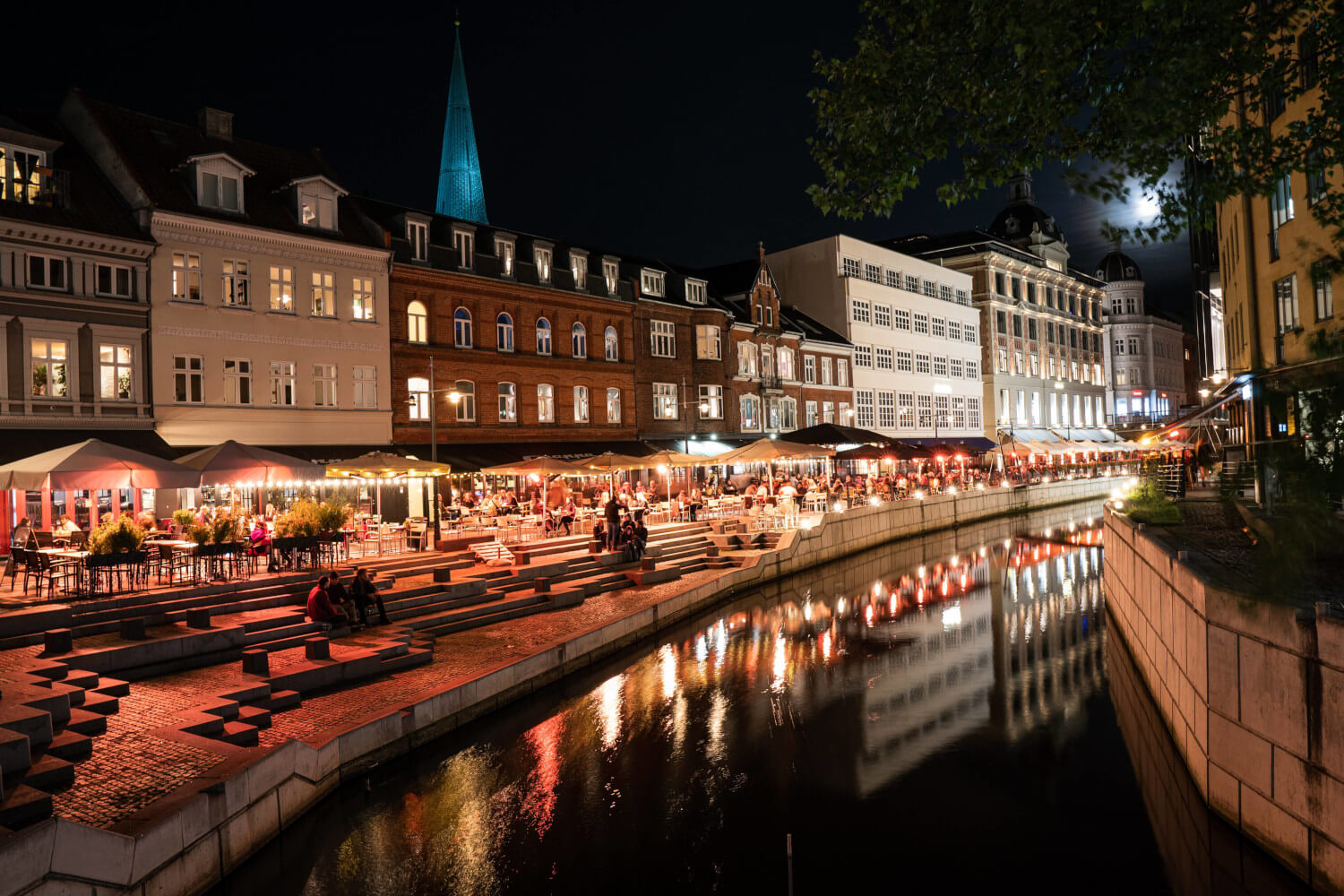Aarhus
Situation: In proximity of Aarhus, a Medium-size city with ~256,000 inhabitants - second largest in Denmark.
Context: Historically, the anthropogenic impact of piping the local river carried environmental conesequences. As Aarhus River was object of restoration actions to reintroduce its ecological processes (including the recovery of its natural surface flow), now it has the potential to act as a green and blue corridor through the city. Nevertheless, improving its ecological status and mitigating flooding problems are needed for this. Further flood prevention measures have been taken.
Climate: Oceanic allowing NICE solutions for wastewater treatment to be tested in cold winter conditions.
Typology: (off-line) treatment wetland for river basin restoration
Description:
In order to improve river conditions, an installation an installation of five pilots strategically located in different sites close to the Aarhus river for treating specific water discharges (agricultural, urban, treated) have been implemented. NICE contributes to the improvement of river conditions by testing nature-based solutions for river basin restoration.

This typology is using an sophisticated aeration system that is based on injecting nano-bubbles. In addition it analyses how different plant exudates interfere in the contaminant removal performance. Finally, five different media were tested, meaning that each media's performance was evaluated in a specific test in order to analyse its removal efficiency. These different medias include those using natural materials such as biochar.
Each have similar setups:
- hybrid vertical and horizontal subsurface flow constructed wetland
- different materials are tested (graded coarse sand, non-woven geotextile), and different plant species (Phragmites, Australis, and Iris pseudacorus)

Conceptual cross section design

Main technological innovation:
- Use of nano-bubbles, also to analyse plant exudates evaluating differences in performance.
- Five media were tested, including biochars.
NICE Urban Real Labs are Nature-based Solutions (NbS) designed and implemented in locations with challenging geographical, environmental and socioeconomic characteristics. Their purpose is to increase the availability of solutions that contribute with water circularity in urban areas. NICE Urban Real Labs cover a wide range of climate zones, including a) Tropical and Subtropical (Pereira and Turin), b) Mediterranean (Algeciras, Benalmadena, Cairo), c) Oceanic (Aarhus), d) Continental (Talavera and Madrid), e) Baltic (Gdansk) and f) transitional between temperate and moderately Continental and Mediterranean (Lyon).

This project has received funding from the European Union's Horizon 2020 research and innovation programme under grant agreement No.101003765.
